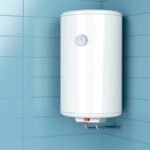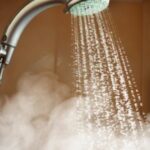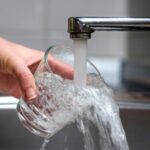
A tankless water heater can be a great long-term investment for many homeowners, no matter where you live. This type of water heater doesn’t store hot water: it heats it on demand. Because tankless hot water heaters don’t need to hold a full volume of hot water, they can also save money on energy costs when compared with traditional units that you’re probably currently using.
Tankless water heaters are a more attractive option for homeowners due to their efficiency, convenience, and potential energy savings. But if you are thinking about swapping to a tankless water heater, it is important to weigh the pros and cons before investing in one. Let’s take a look.
A tankless water heater is designed to improve the efficiency of your hot water, save space in your house, and have a zero risk of exploding. Here are a few advantages of installing tankless water heaters in your house.

On the other hand, tankless units only start up when hot water is needed, thereby reducing energy costs significantly. They can be installed with little or no disruption to the household, and are quite simple to operate.
That said, energy efficiency is the biggest perk of tankless water heaters as they don’t need to store 50 gallons of water to offer you a hot bath. Although they are more expensive than their tank-style counterparts, the upfront investment pays off in the long run.
Tankless water heaters can save up to 50% on your electric bill because they turn themselves off when they aren’t being used.

After years of making life slightly difficult, tank-style heaters have the nasty habit of leaks and flooding. Even worse is the blocked-up pipes that follow. And over time, minerals from hard water can build-up within the tank, causing it to corrode and leak.
Since a tankless water heater doesn’t have a tank for storing water, there is nothing to overflow, making it leakage-proof.

The average tank-style water heater lasts between 8 and 12 years. But tankless water heaters usually last over 20 years. So, if you are planning to live in your current house perpetually, tankless water heaters could be the right choice.

Tankless units make it easier for homeowners to be greener because hot water doesn’t need to sit unused in a tank that is constantly losing heat from its walls. They have also been proven to last longer than traditional water heaters and it is estimated that they will last double the time before you have any warning signs of failing parts. But they still aren’t perfect.
Below are a few disadvantages of installing tankless water heaters in your house.

Due to the expensive initial setup cost, tankless water heaters are often less appealing options for homeowners.

So, if you live in an area prone to frequent storms or power outages, a tankless water heater won’t do you much good. If you know this is an issue in your area, stick with a traditional water heater.

Besides, when you turn on the hot water, the gas unit will first warm up the tanks until it can provide you with the water you need. And you may get cold or lukewarm water for the first couple of minutes before the hot water finally reaches you. That’s probably one of the reasons why many people prefer not to use them with showers as you require a steady flow of hot water to enjoy your bath.

Tankless heaters are known to last longest in home setups that do not experience large fluctuations in water temperature. Additionally, if you live in a hard water area, softening your water might also help protect your heater. These are all challenges to discuss with your water company to ensure a tankless water heater is the right option for you.
A good water heater is one of the most important parts of your plumbing system. If you don’t already have a tankless water heater or would like to upgrade to a new one, we offer water heater services in Darnestown. Our technicians are experienced in repairing and installing a variety of water heaters in Highland MD. Get in touch with us today to discuss the right option for your home.
National Water Service has been providing residential & small commercial water treatment, plumbing & well pump services for over 45 years. We specialize in water treatment, filtration & purification solutions as well as general plumbing to ensure clean, safe water for our customers in Maryland, DC & Northern Virginia.
Mon - Thurs
7:00am - 5:00pm
Friday
7:00am - 4:00pm
Sat - Sun
Emergency Service Available
National Water Servicing Corporation — 2025 All Right Reserved ™